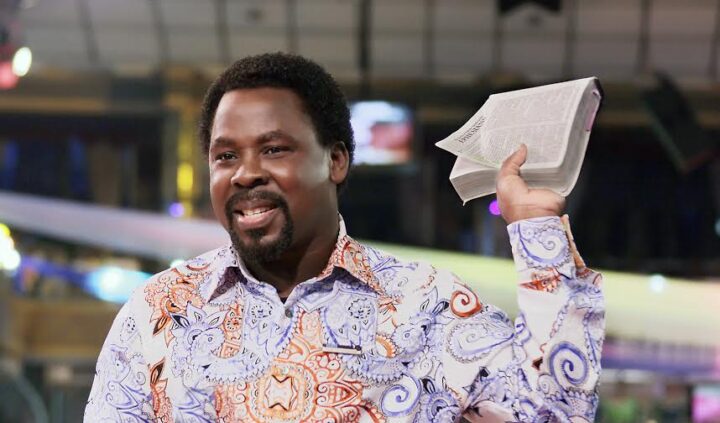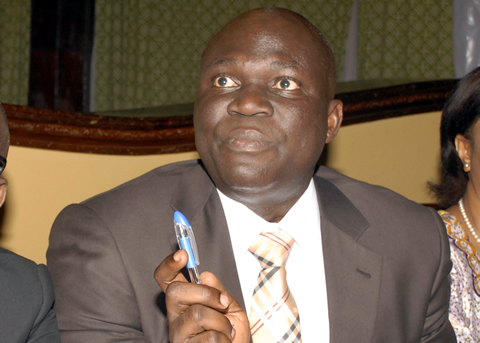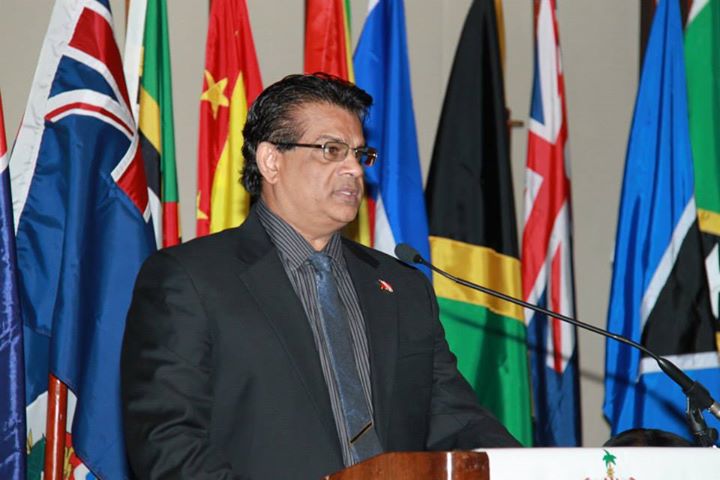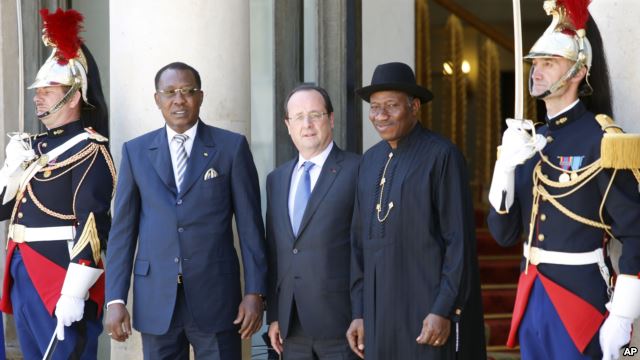News that Muhammed Ali’s battle with the incapacitating disease, Parkinsons, has reached a point where he is unable to speak is not shocking but still, so, so heartbreaking.
At the premiere of a film focusing on his family life last week, a statement was released saying that the legendary icon was too ill to attend the screening. Recently, his son, Ali Jnr, had also said that his father was “so ill” he believed there was “no chance” the former boxer would survive until the end of 2014.
This news isn’t really a surprise because the three-time world heavyweight champion, 72, has battled with the debilitating illness for decades. At the peak of his career Muhammed Ali delighted audiences with his charisma, excess skill and humor but Parkinsons has left him a shell of his former self and robbed this most verbose and loquacious of men his physical co-ordination and speech. Images of him a couple of years ago at the London Olympics exposed the silhouette of a man so frail and so sick he was barely holding on to dear life. It was such a departure from the Ali, who was famed for his quick wit and lightning speed in the ring, that the world knew. However throughout his illness, no matter how bad it gets, his dignity never fails to shine through.
Since I began writing over a decade ago, every couple of years, I have made it a point to periodically write about Muhammed Ali and a very small group of other ‘living’ global personalities and famous people as my contribution to spreading their message and story. (While there are many other deceased personalities that have impacted me, this particular list is made up of non-Nigerians who were alive at the time I started writing in 2003). For me, this group have inspired me, shaped my viewpoint, impacted me in a very significant way and continue to do so. It is also a group whom I have come to admire, absolutely adore and celebrate. During the span of my writing, some have passed away while some are still living and the list continues to expand. That group consists of, Nelson Mandela, Ahmed Deedat, Pope John Paul II, Margaret Thatcher, Wangari Maathai, Jerry Rawlings, Maya Angelou, Barbara Taylor Bradford, Fatou Bensouda, Hillary Clinton, Mo Ibrahim, Abdul Rahman Al-Sudais, Shirin Ebadi, Michael Jackson, Prince Charles, Angelina Jolie, Boris Johnson, Mo Farah, Andy Murray and now Malala Yousafzai.
Advertisement
With the news that his condition has deteriorated to a level where he is struggling to hold on, I feel the need to pay homage to this incredibly special person and tell another generation, who may not be aware, the story of a man who is the epitome of brilliance, humor, spirit and will power. He is an incredibly remarkable personality and his story should never stop being told.
Whether one followed his career or not or agreed with his political views and lifestyle, there is no arguing the fact that Muhammed Ali remains a spectacularly unique and fascinating person. For a very traditional Hausa/Fulani girl, from a rural African village in North Western Nigeria to be so moved by him that she developed an interest in the sport of boxing says a lot about his ability to inspire from afar.
I am often asked why and when I began to develop an interest in writing. My interest in writing and style was actually ignited by Muhammed Ali. When I started writing, I started by writing poetry and spoken word pieces inspired by Muhammed Ali’s poetry and spoken word. Often, before or after a match or during interviews, Muhammed Ali, a keen poet, would express himself in rhyme form and he would tell stories in the wittiest way using poems. For instance, when he was about to fight Joe Frazier he summed up his predictions in an interview when he rhymed, “Joe’s going to come out smoking. But I ain’t gonna be joking. I’ll be picking and poking, pouring water on his smoking. This might shock and amaze ya. But I’m gonna destroy Joe Frazier.” Then after the “Thrilla In Manila” fight with the same Frazier he said, “It will be a Killer, And a chiller, And a thrilla. When I get the gorilla in Manila.”
Advertisement
Clips such as the one on the following link show how very captivating, hilarious and endearing he was when expressing himself in that form.
Watching him perform was the most remarkable and entertaining thing ever and it was a form of expression that I immediately clung to and tried to emulate. This interest I had in the way he recited poetry led to me writing stories using the same rhyming format and this invariably led to other forms of writing. As weird as it sounds, today, I can honestly say that it is largely to Muhammed Ali’s credit that I write.
The story and life of Muhammed Ali is just as colorful and fascinating as his infectious and endearing personality.
Muhammad Ali was born Cassius Clay. He began to box at the age of 12 after an incident in which his bike was stolen. Hurt by the theft, he vowed to “whup” whoever stole his bike. A local policeman cautioned him and advised him to “learn how to box” before carrying out his threat. This was enough to inspire him and within weeks he trained, boxed and won fights.
Advertisement
He had 108 successful amateur bouts before his 18th birthday and in 1960, Cassius Clay won the Olympic gold medal in Rome. Due to the segregation of blacks in Southern America during that time, Cassius was refused service at a local restaurant despite his Olympic achievement. This fuelled his ambition to succeed and reach out to minorities. The ultimate glory came when, against the odds, he defeated Sony Liston to emerge heavyweight champion of the world in 1964. While training for that title bout, he announced to the world that he was a member of the Nation of Islam and that his name was Cassius X, latter to be changed to Muhammad Ali. The response to this news was negative but he didn’t let it affect, influence or deter him. Whenever he was asked about his attachment to Islam, Ali joked that he was going to have four wives: one to shine his shoes, one to feed him grapes, one to rub oil on his muscles and one named Peaches!
In 1967, as the Vietnam War was escalating, Ali was called up for induction into the armed services. He refused induction on the grounds of religious beliefs. Typically in a joking manner he said, “…I done wrestled with an alligator; I done tussled with a whale; Clean out my cell and take my tail to jail; ‘Cause better to be in jail fed than to be in Vietnam dead…” And latter he declared, “I ain’t got no quarrel with them Vietcong.”
The national anger in America over the last comment combined with Ali’s refusal to go into the armed services caused the authorities to cancel his boxing licenses. He was convicted, stripped of his championship title, his passport confiscated and he faced a 5-year prison term. Eventually after 2 ½ years, the Supreme Court reversed his conviction and restored his license. This action elevated him to hero-status because he was the first American national figure to speak out against the war in Vietnam.
Among the highlights of his career is the well known, ‘the rumble in the jungle’; a fight between him and a fearsome champion George Foreman in Kinshasa, Zaire. Before the match, in his usual boastful manner, Ali predicted, “to prove I’m great he will fall in eight…” And true to his word in the 8th round Foreman was knocked out of the match.
Advertisement
To his credit, Ali became the first man to win the world heavyweight title three times. He revolutionised boxing by pioneering a style that went against many of the game’s consecrated traditions. By the end of his career, Ali had fought an impressive 61 bouts with 56 wins (37 by knockout) and 5 defeats (1 knockout). Shortly after his retirement, he was diagnosed with Parkinson’s disease and has been battling it ever since.
Before Muhammed Ali started boxing, the sport was said to have largely been controlled by the mob (mafia) but he came along and defended it as a sport. He gave this most uncompromising of sports beauty, grace, style, magnetism, humour, class, sheer excitement and beauty. He fought with emotion and heart. In his usual stubborn way he refused to adhere to the conventional way of boxing and told the establishment, “I don’t have to be what you want me to be; I’m free to be what I want.”
Advertisement
In the ring Ali used a method that flouted boxing logic; for one he had arm reach and used it so that he didn’t have to get close enough for his opponent to hit him. Additionally his powerful legs allowed him to dance, shuffle and float in the ring. The ‘Ali shuffle,’ a foot maneuver invented by him allowed him to elevate himself up and sometimes deliver a blow while dancing. At the time when his career bloomed, boxers never talked to the media but Ali disregarded this by boasting and predicting matches in that very public, bragging and poetic manner. In a rhyme that latter came to define his mode and manner in the ring, Ali said of himself “I float like a butterfly, I sting like a bee; his hands can’t hit what his eyes can’t see.”
…Floating, stinging, striking, winning or rhyming, many will agree that Ali has today emerged as the world’s most adored athlete and one that the world of sports will forever miss. When asked how he felt about retiring from boxing, Ali correctly proclaimed, “I wont miss Boxing; Boxing will miss me!” As a boxing fan I must say, it really does.
Advertisement
His confidence and egotism was so ‘in-your-face’ it was endearing. For instance, when asked whether he was good in golf, his response of, “I’m the best. I just haven’t played yet” or after failing US army’s aptitude test, his response of, “I said I was the greatest, not the smartest” was not offensive at all. His cockiness in proclamations he often made such as, “I’m so fast that last night I turned off the light switch in my hotel room and was in bed before the room was dark” were rather hilarious.
He is so much more than a boxer or an endearing personality. In this day, as he battles for his life, his actions outside of the boxing ring continue to speak volumes. In his journey he risked everything; his standing, his title, his achievements and his livelihood, yet he managed to surface as a hero and a man of principle for all time. He has always been known to stand up for his beliefs, loves children and respects women. Muhammed Ali is a super, super, super star; confident, smug and incredibly handsome!
Advertisement
Ali will always be a great inspiration to mankind as a whole and black people in particular. We can all learn a great deal from him. He gave people hope and proved that anyone could overcome insurmountable odds to achieve their dream. Even now, as ill as he is, Ali has been a relentless advocate for people in need, having delivered millions of dollars in food and medical relief to third world countries and raising an alleged $100 million for charities throughout the world.
For the last three decades the terrible disease that has dogged Ali has done its fair share of crippling him, but he has given it a good fight back. He has fought Parkinson’s disease with the same courage and determination he brought to the ring and to his work aimed at alleviating poverty, hunger and intolerance.
With the recent reports of his deteriorating condition, many around the world shall continue to pray to God to bless him and keep him safe and pain free until the end.
He touched the world and in return the likes of myself will always ‘love’ him dearly from the very, very bottom of our hearts. Since the demise of Nelson Mandela, of all living public personalities, Mohammed Ali is the one that I consider as my ultimate personal hero.
I thank him for representing so many things in my life; I learnt so much from him, mostly good, some bad. I am so grateful to him for instilling in me the love of poetry, freestyle rhymes and so much more.
Perhaps amongst the adverse and naughty things I learnt from Ali was, how to unleash a fiery temper, a mighty mouth that doesn’t always respond to the need of remaining ‘zip’ and a sense of humor that can, at times, be sarcastic and biting. I also learnt how to successfully beat up boys and bullies all the way back in my school days…and I have never stopped doing it ever since!
How does one comprehensively describe the story of a man like Muhammed Ali? Well, one doesn’t need to, because one of the greatest living icons of our time has already described his story himself when he said, “…This is the legend of Muhammad Ali, The greatest fighter that ever will be… He talks a great deal and brags, indeed… Of a powerful punch and blinding speed… Ali fights great he’s got speed and endurance… If you sign to fight him, increase your insurance… Ali’s got a left, Ali’s got a right; If he hits you once, you’re asleep for the night…”
For the duration of my life, I will forever continue to adore him and pray for him. Muhammed Ali was, is and will always be; that which he proclaimed to be – “simply the greatest!”
Add a comment







